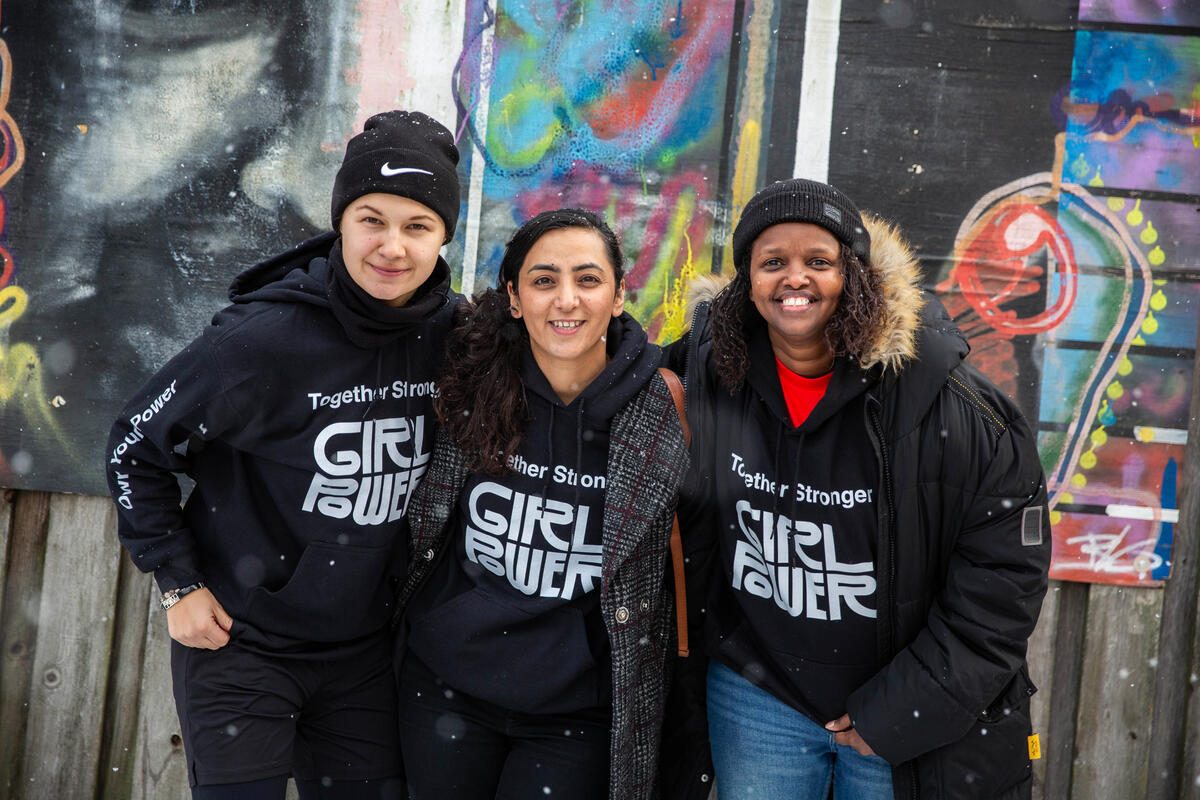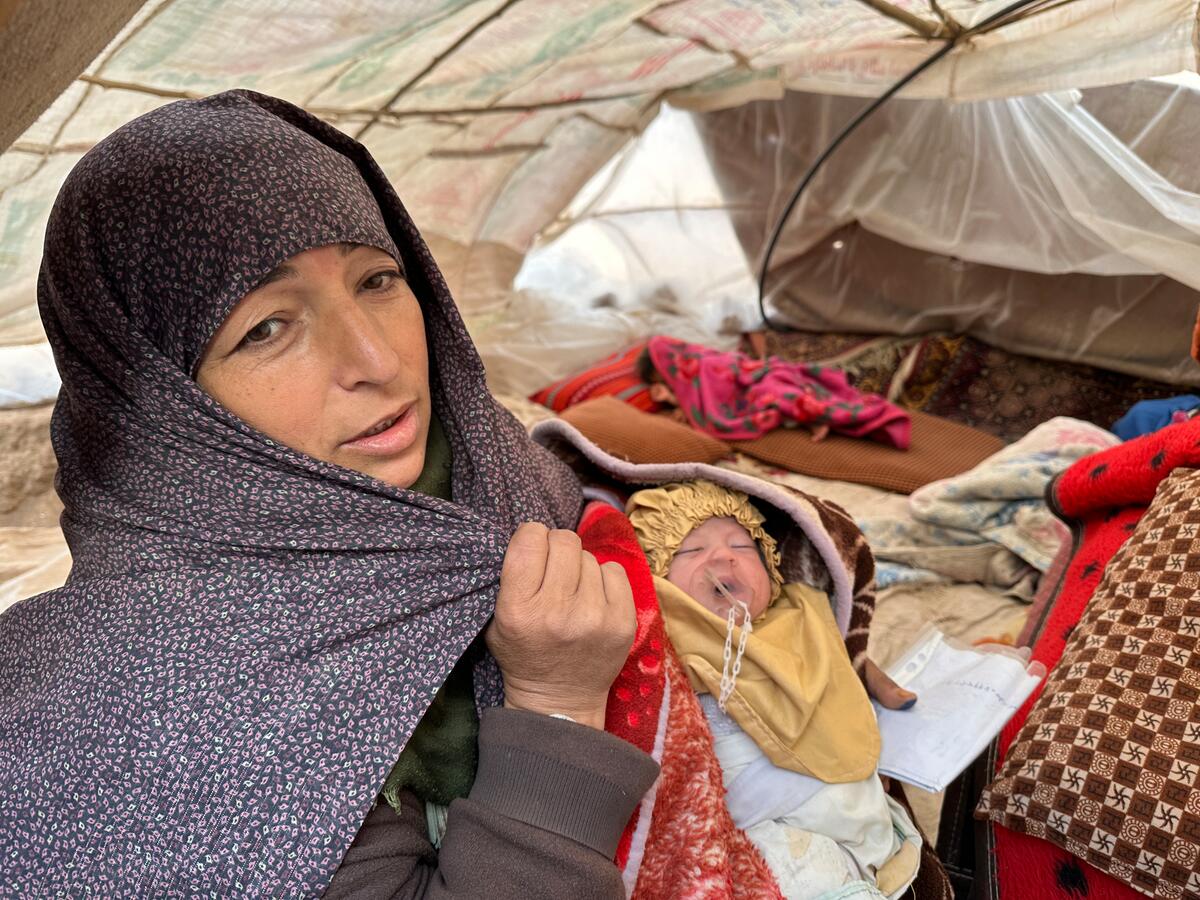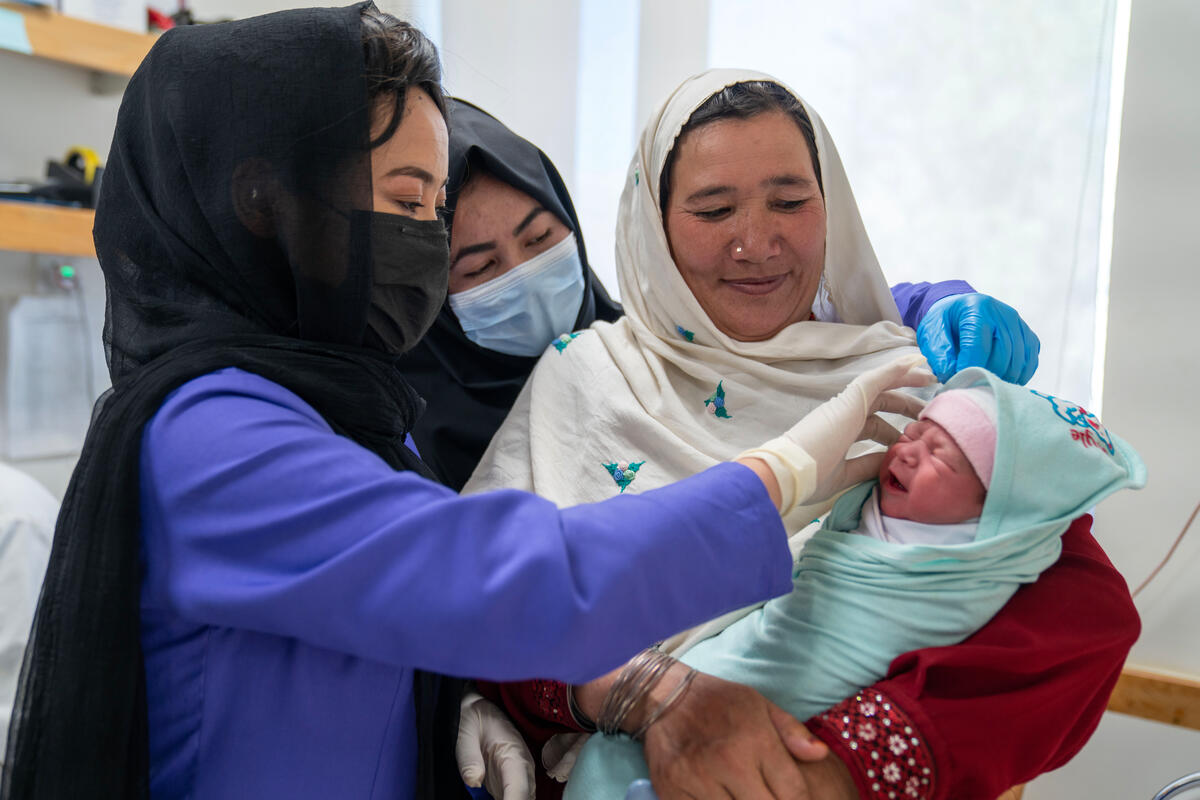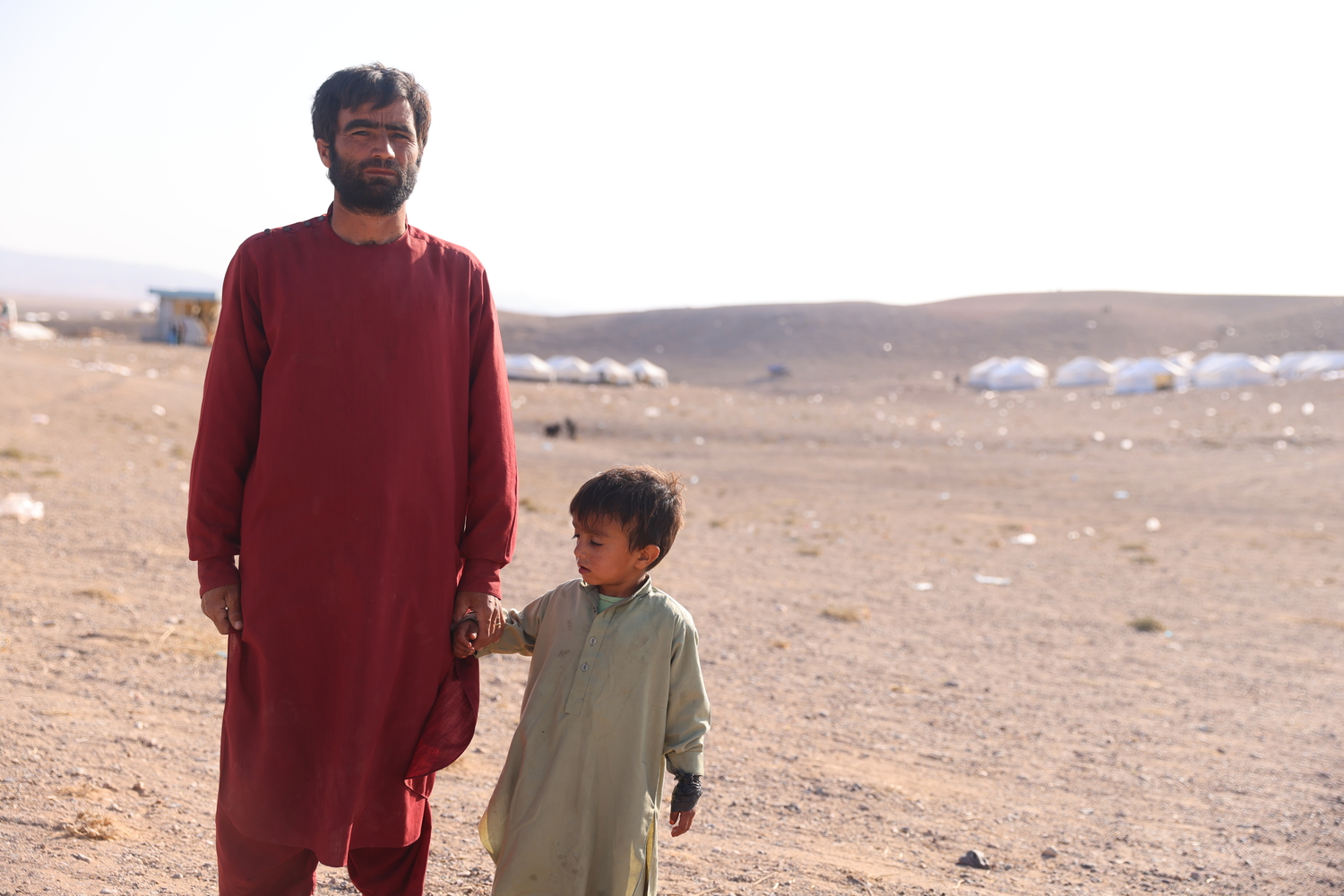Afghanistan Humanitarian Update No. 49
Afghanistan Humanitarian Update No. 49
16th January 2002
At a Glance:
- Over 35,000 Afghans repatriate in last two weeks
- Stranded refugees finally begin moving
- UNHCR returns to Kandahar
- UNHCR to open new camp in Pakistan
- Serious displacement in central Afghanistan
Over 35,000 Afghans repatriate over last two weeks
During the past two weeks more than 35,000 Afghans returned home, according to UNHCR staff monitoring selected border crossing points from Iran and Pakistan.
The majority of the recent returnees left Balochistan Province in southern Pakistan, from where more than 25,000 refugees repatriated during the first half of January. Returns from Iran topped more than 10,800 during the first half of the month, all of them crossing via the Dogharoun border, eastern Iran's principal gateway to Afghanistan.
Return movements from Pakistan's rugged North-West Frontier Province are more difficult to gauge, UNHCR staff reported. Some 3,500 Afghan families - about 15,000 people - mainly minority Shi'ite Muslim refugees, have approached UNHCR seeking repatriation assistance to Mazar-i-Sharif and other areas in central and northern Afghanistan.
Due to the precarious security situation in many parts of Afghanistan and the difficult winter conditions, UNHCR does not plan to facilitate return movements until at least March, assuming the situation in the war-ravaged country continues to improve.
Stranded refugees finally begin moving
After weeks of appeals, Pakistani authorities gave permission on Wednesday to UNHCR to relocate some 600 vulnerable Afghans from areas adjacent to the Chaman border crossing in the south of the country to a new location. The refugees, representing some 120 families, some of whom had been stuck at the windswept border for two weeks, were medically screened and the children were vaccinated as they were relocated.
More than 13,000 Afghans remain stuck on the Pakistani side of the border on the doorstep of UNHCR's Killi Faizo transit centre. Many of the refugees are spending their third week in the open with little or no protection from the harsh winter elements, as the Pakistan government has refused UNHCR permission to register the new arrivals. The recent heavy rains sweeping the region have made their lives more miserable.
UNHCR has distributed blankets and fruit, and provides water to the refugees. High protein biscuits from the UN's World Food Programme are also being distributed. UNHCR's area head has been at the Chaman border for the past days for discussions with Pakistan's local military and civilian authorities to try to resolve the stand-off.
The thousands of Afghans surged across the frontier from Spin Boldak in early January, and were followed by another 6,000 persons who arrived over four days beginning on 10 January. Many areas of Kandahar province are still teeming with gunmen and bandits, and many of the refugees who crossed into Pakistan over the last two weeks said that they feared for their safety. The lack of food and other relief aid in the region since the UN withdrew last September has also been a major concern.
UNHCR wants to increase the pace of the relocation operation in order to shift the newly arrived Afghans to camps where they can be properly assisted and receive medical and other care.
UNHCR returns to Kandahar
Staff returned to Kandahar on Wednesday and re-opened UNHCR's looted office in the bomb-shattered city. UNHCR's expatriate staff, along with all foreign aid workers, had been withdrawn from Afghanistan in September following the terrorist attacks on New York and Washington.
In the days following UNHCR's withdrawal last September, Taliban gunmen had taken over UNHCR's office and commandeered the UN refugee agency's four-wheel-drive vehicles. Office equipment and other relief supplies were also taken.
The returning UNHCR staffers were welcomed back to Kandahar by several of the agency's Afghan colleagues who had returned to the city following the withdrawal of most Taliban units late last year.
A priority for the returning UNHCR staff will be to determine the emergency relief needs of the Kandahar region, from where more than 13,000 fresh Afghan refugees currently encamped just inside Pakistan at the Chaman crossing have fled. Late last year, there were also up to 60,000 displaced Afghans reportedly camped in several makeshift sites just inside Afghanistan near Spin Boldak. UNHCR will be looking at what kinds of relief aid might help to get these displaced people to return to their homes.
Also in southern Afghanistan, UNHCR staff visited the town of Zaranj from 7-12 January. Up to some 4,000 displaced people from 800 families are currently living in difficult conditions in Zaranj, which is located north of the Iranian border city of Zahedan. The displaced Afghans face water shortages and a lack of food aid. Some of the 4,000 sleep out in the open. UNHCR will be working with other agencies in the region to get aid to these displaced Afghans, who mainly originate from villages west of Kandahar.
UNHCR to open new camp in Pakistan
UNHCR plans to open another camp in Pakistan's North-West Frontier Province on Thursday with the relocation of hundreds of new Afghans to the Ashgro I site west of the provincial capital of Peshawar in the country's border belt. Since November, UNHCR has relocated more than 37,000 refugees from Peshawar and the nearby Jalozai makeshift site to six recently established camps in North-West Frontier Province.
In all, UNHCR has established 12 new camps in Pakistan's border regions, split between North-West Frontier Province and Balochistan to the south. UNHCR currently cares for nearly 130,000 Afghan refugees in the newly established border camps.
Tens of thousands of other Afghan refugees who arrived in Pakistan in the wake of the 11 September terror attacks in the US are undocumented and live in cities and old refugee settlements in the border region, but lack relief aid and legal protection.
Serious displacement in central Afghanistan
A recently completed UNHCR survey in Kabul Province and three nearby provinces in central Afghanistan found up to 53,000 displaced Afghan families sheltering in the region. The UN refugee agency survey took place in late December. The 53,000 families represent up to 250,000 displaced people in the four provinces.
Since 13 November when the Taliban withdrew from the Afghan capital, some 47,000 people have returned to the city. Most of the returnees over the last seven weeks were displaced persons, but thousands were refugees returning from Pakistan. The pace of these returns indicates that displacement in the central region is declining, but still remains one of Afghanistan's principal problems.
December's study found some 19,500 displaced families in Ghazni Province, some 15,700 in Kabul Province, 12,700 families in Wardak Province and 4,200 families in Logar Province. Each family has on average five members.
Late last year, UNHCR distributed relief aid to more than 1,500 displaced families in Kabul and surrounding districts. The agency plans to expand its distribution of relief aid into the three nearby provinces and wants to get aid to up to some 17,000 families.
UNHCR is currently seeking local Afghan NGOs that can operate in the remote central Afghan region which is still experiencing serious security problems that hamper the start-up of an expanded aid programme under which UNHCR wants to deliver packages containing stoves, fuel, blankets, kitchen sets, clothing, hygienic supplies and other items to needy displaced families.








